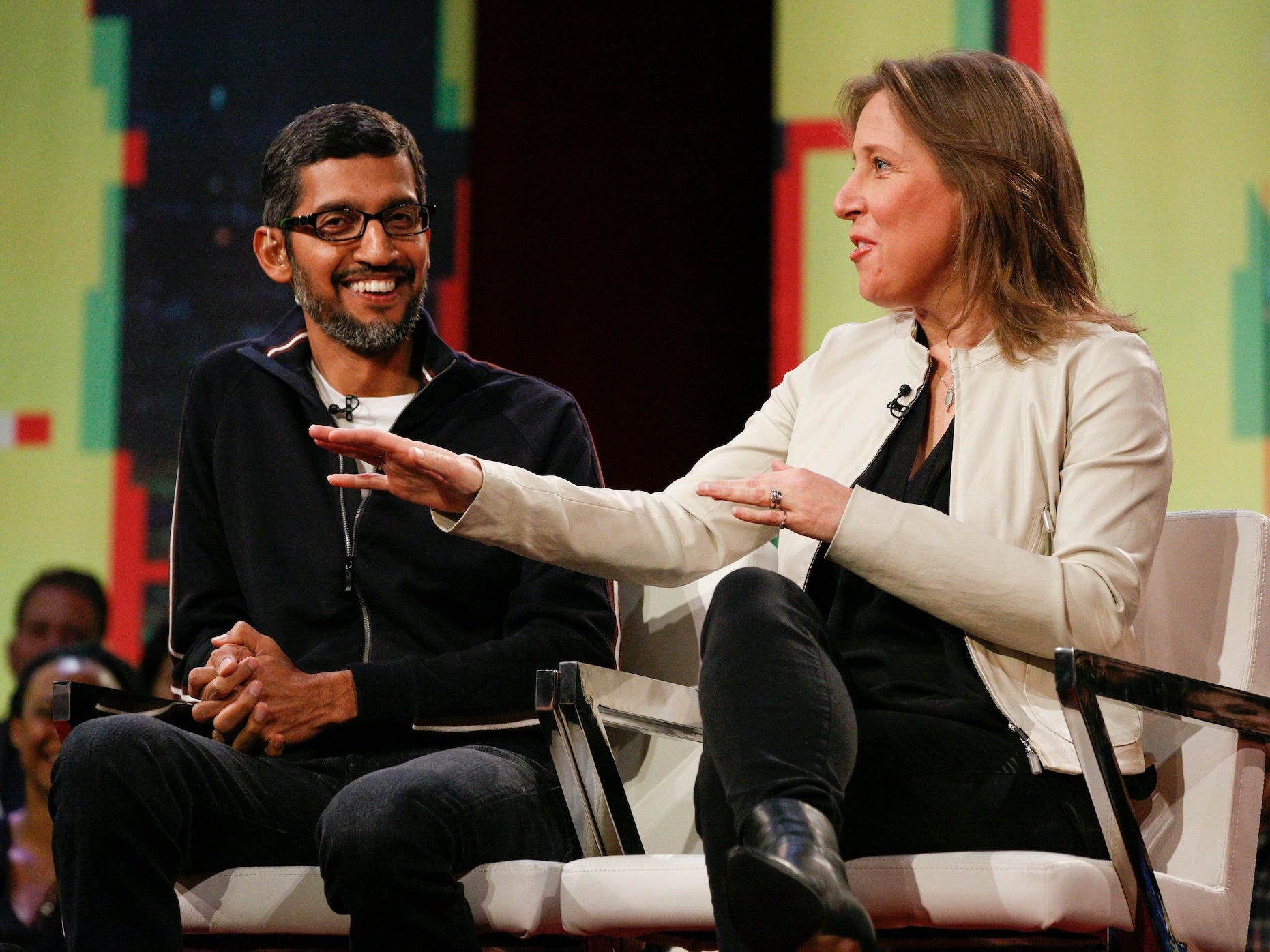- Google prioritizes YouTube video results over that of competitors like Facebook Watch and Twitch, according to a Wall Street Journal report.
- The Journal conducted tests to see which video platforms are featured most prominently in Google’s homepage carousel.
- Sources told the outlet that Google engineers and execs have played a part in how YouTube results appear at the top of the search engine’s home page, which means more traffic for the video platform.
- The report comes as Google sits in hot water faced with multiple antitrust cases, including one later this month in which the company – along with Apple, Facebook, and Amazon – will testify before Congress.
- Visit Business Insider’s homepage for more stories.
With a quick search on Google for any given video, a YouTube result is more likely to pop up, according to a report from the Wall Street Journal published Wednesday. And per the outlet, that’s by design.
The WSJ recently tested the results of various video searches on Google’s homepage carousel and found that YouTube options were much more likely to be featured. It searched Google for 98 recent videos posted on Facebook and Dailymotion as well as YouTube that bore nearly identical titles.
Sources confirmed to the WSJ that Google engineers indeed have made changes to the search engine that favor YouTube over other platforms. Even if, as the Journal notes, videos from other platforms have substantially more views and activity. For example, a YouTube video with 182,000 views and about 400 comments was given much more real estate than a nearly identical version on Facebook that had one million views and 900 comments, according to a test conducted by the outlet.
However, one expert told the WSJ that while its search test methodology checks out, it’s difficult to account for search-engine bias. “If Google says, ‘We favor websites that are more popular,’ then by their standard it might be perfectly OK to list YouTube first,” Dirk Lewandowski, a professor at Hamburg University of Applied Science, told the outlet.
Google acquired the online video platform for $1.65 billion in 2006.
In a statement sent to Business Insider, a Google spokesperson said the company's systems use web signals to consider what people will find most relevant and helpful in search results. "Our video ranking systems use signals from all video sources in the same way - there is no preference given to YouTube or any other video provider," the spokesperson said.
The report comes as the big four in tech - Google, Apple, Facebook, and Amazon - gear up for antitrust hearings before Congress later this month.
But Google, in particular, has and will continue to face multiple regulatory cases designed to investigate how the company's search and advertising business impacts competitors and consumers, as Business Insider's Hugh Langley lays out. Most recently, the company was hit with an antitrust investigation by its home state of California.
